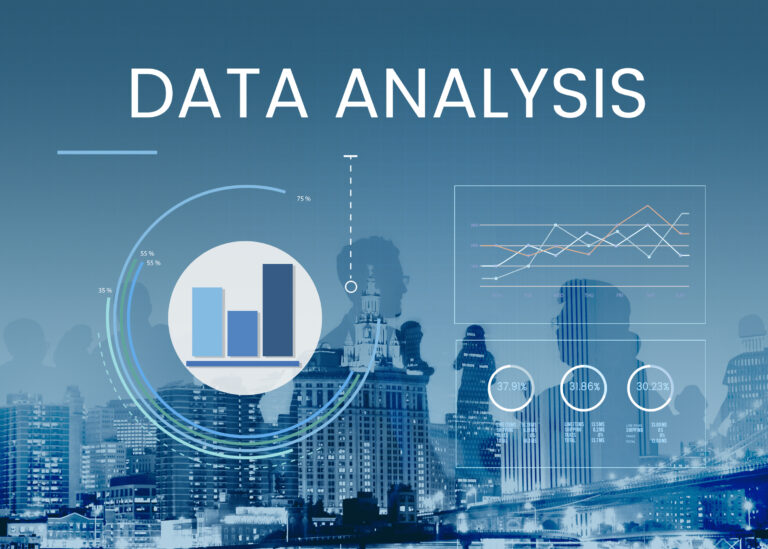The use of Data Analytics in Healthcare enables providers to uncover actionable insights, enhance patient outcomes, and make data-driven decisions that improve overall efficiency. In this blog, we explore how big data analytics is shaping the future of medicine, patient care, and organizational management.
How Data Analytics Improve Patient Care ?
When large volumes of patient data is analysed, healthcare providers can identify potential health risks early, predict complications, and create highly personalized treatment plans. Predictive analytics enables clinicians to intervene proactively, improving recovery rates and reducing hospital re-admissions. Ultimately, big data analytics helps doctors deliver more precise and effective treatments tailored to individual patient needs.
Resource Optimization Through Data Analytics
Efficient resource utilization is critical in healthcare settings, and Data Analytics plays a vital role in this area. Hospitals and clinics can pinpoint inefficiencies, such as bottlenecks in patient admissions or discharge procedures by evaluating operational processes. This insight allows administrators to allocate staff, medical equipment, and other resources more strategically. Big data analytics not only reduces operational costs but also ensures that critical services are delivered seamlessly, enhancing the overall patient experience.
Predicting Disease Outbreaks in Healthcare Industry
Another key application of Data Analytics is in predicting and managing disease outbreaks. By analyzing epidemiological data, healthcare providers can forecast potential outbreaks and implement preventative measures such as increased testing, vaccination campaigns, and resource mobilization. As highlighted by Infosys BPM, predictive analytics empowers healthcare organizations to act proactively rather than reactively, significantly reducing the impact of infectious diseases. The power of big data analytics is crucial for safeguarding public health at a large scale.
Developing and Evaluating Healthcare Practitioners Using Data Analytics
The continuous development of healthcare practitioners is essential for maintaining high standards of care. Data analytics supports this by offering detailed evaluations of practitioner performance. According to CompTIA, analytics can track clinical outcomes, patient feedback, and procedural efficiencies, helping organizations identify skill gaps and areas for improvement. With the help of big data analytics, healthcare institutions can design better training programs, enhance practitioner skills, and ultimately improve patient care quality.
Business Intelligence Driven by Big Data Analytics
In today’s competitive healthcare environment, business intelligence is more important than ever. Data Analytics empowers organizations with critical insights into their financial health, operational effectiveness, and market position. As CompTIA suggests, healthcare providers can leverage analytics to identify underperforming departments, uncover growth opportunities, and make strategic decisions that drive long-term success. Big data analytics helps healthcare institutions to operate more efficiently and stay ahead in a rapidly changing landscape.
Personalized Medicine and Drug Development Through Data Analytics
Data Analytics is a driving force behind the rise of personalized medicine. By analyzing genetic data, lifestyle factors, and medical history, healthcare providers can create treatment plans specifically tailored to each patient. This individualized approach not only improves outcomes but also enhances patient satisfaction. Moreover, big data analytics in healthcare industry is accelerating drug development processes by optimizing clinical trials, identifying potential candidates faster, and predicting drug efficacy. Data analytics in the pharmaceutical industry now relies heavily on data-driven insights to innovate and deliver better therapies.
Types of Data Analytics
Different types of data analytics contribute uniquely to healthcare advancements:
Descriptive Analytics: Summarizes historical data to understand past performance.
Diagnostic Analytics: Identifies causes of past outcomes and anomalies.
Predictive Analytics: Forecasts future events, such as patient deterioration risks.
Prescriptive Analytics: Recommends optimal interventions based on data analysis.
Real-time Analytics: Provides immediate insights for timely decision-making and responses.
Each type plays a vital role in enhancing the capabilities of Data Analytics, leading to more dynamic and effective care delivery.
Benefits of Data Analytics
Implementing big data analytics in healthcare industry offers a wide range of benefits, including:
Improved Decision-Making: Doctors and administrators can make informed, data-backed decisions about patient care and resource management.
Enhanced Efficiency: Streamlining operations and reducing waste through data insights.
Reduced Costs: Identifying cost-saving opportunities in care delivery and operational management.
Increased Patient Satisfaction: Delivering more personalized and efficient care models.
Advancement of Medical Knowledge: Enabling groundbreaking research and medical discoveries by providing access to vast amounts of structured data.
These benefits solidify the indispensable role of Data Analytics in Healthcare across the industry.
Conclusion
The role of Data Analytics is rapidly expanding, offering revolutionary improvements in patient outcomes, operational efficiency, and medical research. From resource optimization and disease prediction to personalized medicine and practitioner development, big data analytics in healthcare industry is unlocking unprecedented opportunities. As technology advances, healthcare organizations that fully embrace Data Analytics will be better equipped to deliver superior care, innovate faster, and achieve sustainable growth.
By investing in big data analytics in healthcare industry, the future of healthcare promises to be smarter, more responsive, and remarkably patient-centered.




